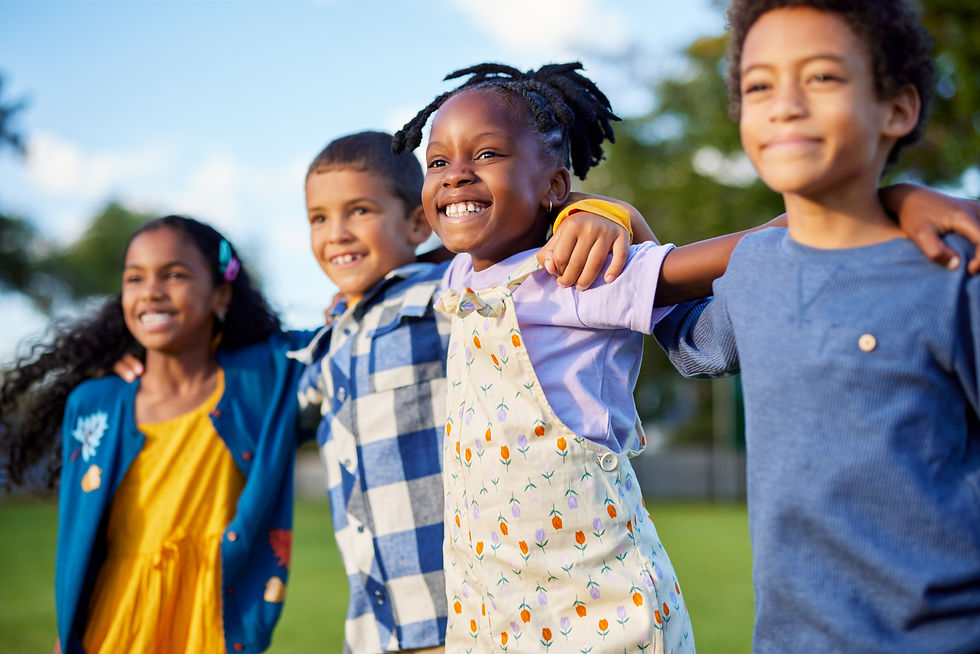Trauma, Resilience, and the Community Resiliency Model
- Cameron Bates & Stephanie Basey
- Dec 9, 2021
- 4 min read

Trauma is what happens when someone experiences a terrible event. Anything that makes us feel like we are in danger of a serious injury or death can be traumatic. Some people have trauma that only happens once, like a bad car accident. But sometimes, trauma happens over and over again. For example, if you live with someone who makes you feel unsafe, you could be experiencing long-lasting trauma. Sometimes people can even have second-hand trauma, or trauma that they get from being in scary situations or hearing stories of trauma over and over from the people they work with. People such as nurses, doctors, counselors, and social workers can all experience second-hand trauma. According to a study from Harvard University, a trauma that happened in our past could be affecting our present health. When we experience or relive traumatic events, we have emotional responses that leave us feeling stressed, depressed, or anxious. Many people also have physical reactions that can create health problems. Many people will likely experience one or more events of trauma in their life. Thankfully, there are people out there who want to stop these negative consequences from affecting people's lives.
Dr. Linda Grabbe is a nurse and professor at Emory University who works with tons of people who have experienced trauma. Her mission is to spread the word in Georgia about a training called the Community Resiliency Model (CRM). The CRM was originally developed by Elaine Miller-Karas at the Trauma Resource Institute in California, and has since spread across the country to reach many different populations. The CRM focuses on how the body reacts to trauma, and helps keep people calm and controlled, instead of being too anxious or too depressed. In CRM, feeling in control and ok is called the Resilient Zone. Resilience is our ability to adapt and overcome traumatic experiences, and is influenced by the genes we are born with and things that happen to us in our life. Resilience can be built through having trusted people to talk to and safe spaces to relax in. When trauma happens, people can easily get pushed out of their Resilient Zone. CRM helps people move back into their Resilient Zone through 6 skills that are taught in the training. CRM mostly focuses on feeling and describing body sensations, but has a range of skills that help many different people. You can find information and tools for CRM on the free app “iChill” or at www.ichillapp.com.
CRM is evidence-informed, meaning it has been proven to help people reduce the impact of trauma. These articles show how CRM can achieve this in different groups of people, such as nurses and other front-line workers. CRM works for diverse cultural and racial groups, all ages, as well as people with different bodies and abilities. It is easy to give trainings on CRM because the training doesn’t cost a lot of time or money. Anyone can take this self-paced class, which will teach you the techniques of CRM. These skills are gifts of calm wellbeing that you can give to yourself and others. CRM teachers encourage everyone to be peer teachers, meaning that we should share techniques of CRM with others in any way possible. In this way, CRM is helping to build a network of people trained in resources that promote resilience. Currently, there are 75 official CRM teachers in Georgia, but many more are spreading the word about this model. We’d love it if you took the time to join us in practicing CRM.
Who we are: Resilient Georgia is a statewide coalition of more than 600 partners and stakeholders committed to building a stronger, more resilient Georgia. Through a network of public and private partners, Resilient Georgia is creating a pipeline of trauma-informed behavioral health services and resources that support child and family wellness. This integrated system includes prevention, early intervention, research, advocacy and policy, and System of Care implementation and coordination. Resilient Georgia’s Grantee Program comprised of diverse, robust, and well-planned public-private partnerships with a regional behavioral health focus are currently underway across 95 counties (60% of Georgia). All 12 Resilient Georgia regional grantee coalitions are deeply engaged in their work to prevent and heal childhood adversity, provide an emphasis on trauma-informed awareness and care, and promote resilience with the children and their families in their communities. To learn more about our regional coalitions, check out the Resilient Georgia website. You can also find us on social media: @resilientgeorgia on Instagram and @resilientga on Facebook.
About CRMGeorgia: The mission of the CRMGeorgia is to build a program of positive health and well-being in the State of Georgia. We aim to achieve this through Community Resiliency Model (CRM)® training to providers of care and community members, capacity building, and translation and communication. CRMGeorgia is a central hub in the State of Georgia to advance trauma- and resiliency-informed CRM training to individuals and groups in neighborhoods and communities, schools, law enforcement, healthcare, social services, corrections, and many other settings. To learn more about CRMGeorgia, check out their website.





Comments